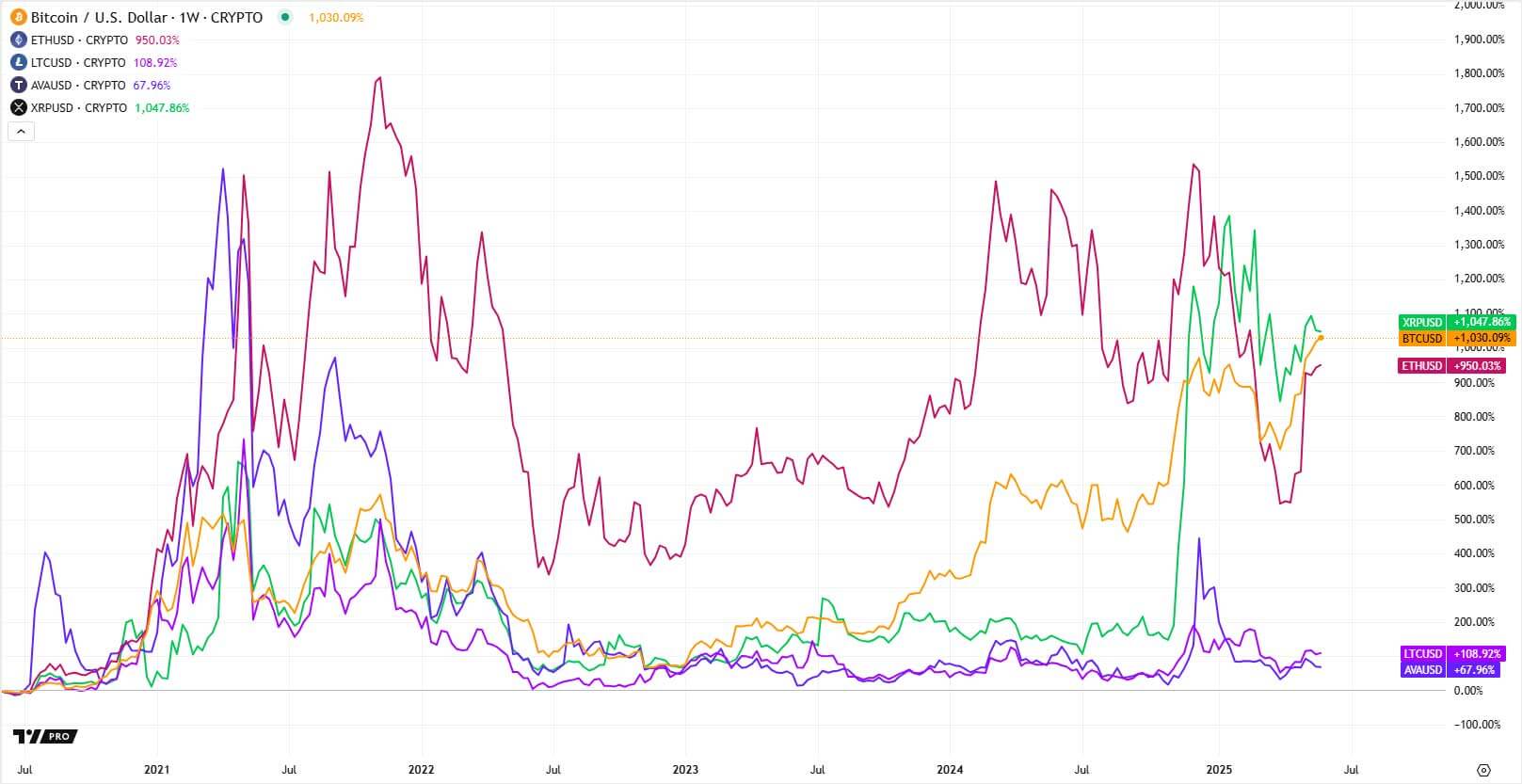Travel Meets Crypto: The Future of Vacation Payments

Since the advent of Bitcoin in 2009, cryptocurrencies have progressed from experimental technology to a full-fledged financial instrument. Today, they are actively entering various sectors of the economy, including tourism.
Bitcoin tourism is a new phenomenon in which travelers use cryptocurrencies to pay for flights, hotels, excursions, and other services. This trend simplifies cross-border payments and influences the value of leading crypto assets such as Bitcoin, Ethereum, and other altcoins.
In simple words, this is a direction in which cryptocurrencies are used as a payment method in the tourism industry. Their popularity is growing due to several factors:
-
No borders: Cryptocurrencies allow you to avoid high fees for international transfers and fiat exchange
-
Anonymity: Some travelers value the privacy of crypto payments
-
Transaction speed: Payments via various blockchains take seconds compared to days for money transactions
Impact on the value of major coins
-
Growing demand: The more companies accept cryptocurrencies, the higher their transaction volume, which results in price rise
-
Increased real-world usage: Becoming payment instruments, such coins like BTC and ETH are no longer considered as just speculative assets. This leads to a rise in the Ether and Bitcoin price, growing trust, and boosting the scale of use
-
Ecosystem development: Tourism-related projects stimulate the development of new blockchain solutions, such as smart contracts for reservations and decentralized platforms
Top 5 cryptocurrencies for travel
1. Bitcoin (BTC)
Thousands of hotels and travel agencies accept the most prominent cryptocurrency.
It has several benefits over other cryptos:
-
Versatility: Bitcoin is accepted by thousands of companies worldwide, from small hostels to premium hotels
-
Liquidity: BTC can be easily exchanged for local currency through crypto ATMs or P2P platforms
-
Security: Bitcoin is justly considered one of the safest coins, allowing for storage, exchange, and payments without revealing your identity
-
Layer-2 solutions: Like other blockchains, BTC has its own layer-2 solutions, such as Lightning Network, which enhance its capabilities
However, if you're using the original — layer-1 — Bitcoin blockchain, fees may be high due to low transaction throughput.
2. Ethereum (ETH)
ETH is another widely accepted coin that is popular due to its ability to scale its native blockchain easily.
-
Various layer-2 solutions: These allow for payments via smart contracts in booking systems without intermediaries
-
A broad ecosystem: Many decentralized applications in the tourism industry run on the Ethereum blockchain
-
Staking and cashback: Some services offer bonuses for paying in ETH
As more tourism-related platforms adopt ETH, the Ethereum price could experience positive momentum driven by increased utility.
3. Litecoin (LTC)
LTC is a lightweight fork — an adjusted version of the original code — of BTC. Its main goal is faster and cheaper transactions due to smaller blocks.
This gives Litecoin several advantages over Bitcoin:
-
Speed: Transactions are confirmed four times faster than on the Bitcoin blockchain
-
Low fees: Ideal for small expenses such as cafes, transport, and souvenirs
-
Security: LTC's anonymity is comparable to Bitcoin's
The limitation is that fewer outlets accept LTC directly.
4. Travala (AVA)
AVA is a native cryptocurrency of its platform, which offers hotel reservations made in crypto.
-
Own platform: Travala offers more than 3 million hotels and accommodations with payment in AVA
-
Discounts: Using AVA gives up to 10% off the price for hotel reservations
-
Loyalty program: Token holders receive additional bonuse
However, this token is rarely supported outside the Travala ecosystem.
5. XRP (Ripple)
Its main use case is facilitating international bank transfers and payment systems.
-
Instant transfers: international payments take only from 3 to 5 seconds
-
Cross-border payments: Used by banks and fintech companies to convert fiat currencies
-
Low fees: The average minimum fee is $0.0002 per transaction
However, there are fewer options for direct purchases, as its main use case is currency exchange.

How does crypto work in tourism?
Hotel reservations:
-
Platforms that support crypto payments use gateways such as BitPay, CoinGate, and Coinbase Commerce
-
The amount is converted to fiat in real time to avoid volatility
-
The hotel receives payment in its national currency, and the client receives a reservation confirmation
Purchase of air tickets:
-
Some aggregators allow you to choose BTC, ETH, or LTC payment options
-
Tokenized tickets issued on the blockchain enable resale without fees
Tokenized tickets and decentralized bookings
Tokenized digital tickets are issued on the blockchain.
Their advantages are:
-
Impossible to forge: Each ticket has a unique hash, meaning it can't be replicated
-
Resale without intermediaries: You can sell a tokenized ticket on a P2P platform and save money in case your plans changed
-
Automatic refunds: Smart contracts can refund money when a flight is cancelled easily
Decentralized bookings
Such platforms don't have intermediaries, and transactions occur directly between the client and the service provider.
They usually have lower commissions and provide transparency of all the conditions that are mentioned in smart contracts.
Crypto projects for digital nomads
Digital nomads are people who work remotely and travel the world. Specialized cryptographic projects have also been created for them:
-
Nomad Token (NOMAD): Provides access to coworking spaces and discounts on housing
-
CryptoBnB: Similar to Airbnb, but with payment in BTC and ETH
-
Gitcoin (for IT freelancers): Allows you to find a job and receive payment in cryptocurrency
What's next
Cryptocurrencies are gradually changing the tourism industry, making it more decentralized and accessible.
Crypto tourism is not just fashion, but a steady trend that will grow alongside the development of blockchain technologies.
More hotels and airlines have started accepting cryptocurrencies, which leads to new tokenized travel solutions.
Decentralized booking services compete with traditional aggregators, creating extra freedom for travelers, providing access to many services, and helping people visit places they've dreamed about.
About The Author
Contact Evelyn Baker privately here. Or send an email with ATTN: Evelyn Baker as the subject to contact@investorshangout.com.
About Investors Hangout
Investors Hangout is a leading online stock forum for financial discussion and learning, offering a wide range of free tools and resources. It draws in traders of all levels, who exchange market knowledge, investigate trading tactics, and keep an eye on industry developments in real time. Featuring financial articles, stock message boards, quotes, charts, company profiles, and live news updates. Through cooperative learning and a wealth of informational resources, it helps users from novices creating their first portfolios to experts honing their techniques. Join Investors Hangout today: https://investorshangout.com/
